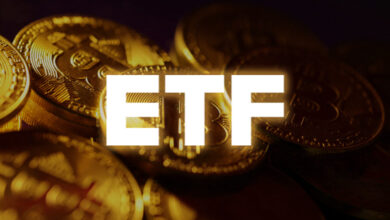Mashreq Bank and MEED launch Blockchain in construction report

MEED Magazine in partnership with Mashreq Bank recently published a joint report on Blockchain in Construction. According to MEED blockchain is now entering into mainstream, and for the construction industry, it is said blockchain will enable instant data sharing with project parties, while blockchain-supported ‘smart contracts’ will reduce payment delays.
The report adds that Blockchain also offers opportunities when it comes to building information modeling (BIM). During its lifecycle, the blockchain would accumulate data on a building’s energy usage and efficiency, performance and sustainability record, including its carbon footprint. This opens up the tantalising prospect of selling the recycling value of your building before it has been built, and using the revenue to fund the construction Blockchain can act as the link between technologies such as building information modelling (BIM) and internet of things (IoT). Materials and processes detailed in the BIM model can be tagged and tracked through IoT-enabled sensors. BIM models can be updated with real-time data transmitted from disparate IoT devices across a building, secured using a blockchain network. Any changes made to the BIM model can be tracked and registered using a blockchain platform, while building information can be stored on a secure ledger as a permanent, secure dataset.
Although the technology has been overhyped in terms of what it offers, it still has many features that can improve the way construction operates in the UAE. But lately, blockchain has faced something of a backlash and the risk now is that a negative over-reaction will prevent the technology from being fully explored. This would be disappointing because while the technology is certainly not the panacea promised by its promoters, neither is it the overhyped fad that its detractors say it is.
The reality is blockchain will be a suitable technology in some cases, but not in others. For those seeking to improve the way the construction industry functions, the correct approach is to use blockchain where it is appropriate.
Examples in the report include The UK’s HM Land Registry is also testing blockchain to research digital land registers in its ‘Digital Street’ project. In the UAE Dubai Land Department (DLD) recognized this early on and is one of the first government entities in the world to introduce blockchain technology in its service offerings. Mureed Mustafa, director of operations at Emirates Real Estate Solutions (ERES), says: “With the real estate industry undergoing a digital transformation, blockchain is having an instrumental effect on the industry, from property purchasing to due diligence to title management.” ERES is a joint venture company between Emaratech Software and Systems and DLD, and is the technical arm of DLD.
Some of the solutions provided by DLD include title deed verification, Ejari static registry access, a listing engine, rental dispute centre verdict static registry and e-mortgage transaction verifications. “Blockchain processes have become fundamental to our day-to-day operations and an indispensable element of our government,” says Mustafa.
Ankit Uppal, associate director for digital and innovation – emerging technology at KPMG Lower Gulf, says that blockchain technology is not particularly prominent within the construction industry in the Middle East. “There are use-cases being tested globally to target key pain areas in the sector, for instance a highly fragmented, scattered and complex supply chain,” he says.
The report emphasizes the importance of smart contracts in construction, the need for regulation and new legislations to incorporate blockchain into construction and the cost efficiencies as well as new business models that can be created using blockchain in construction.BI





